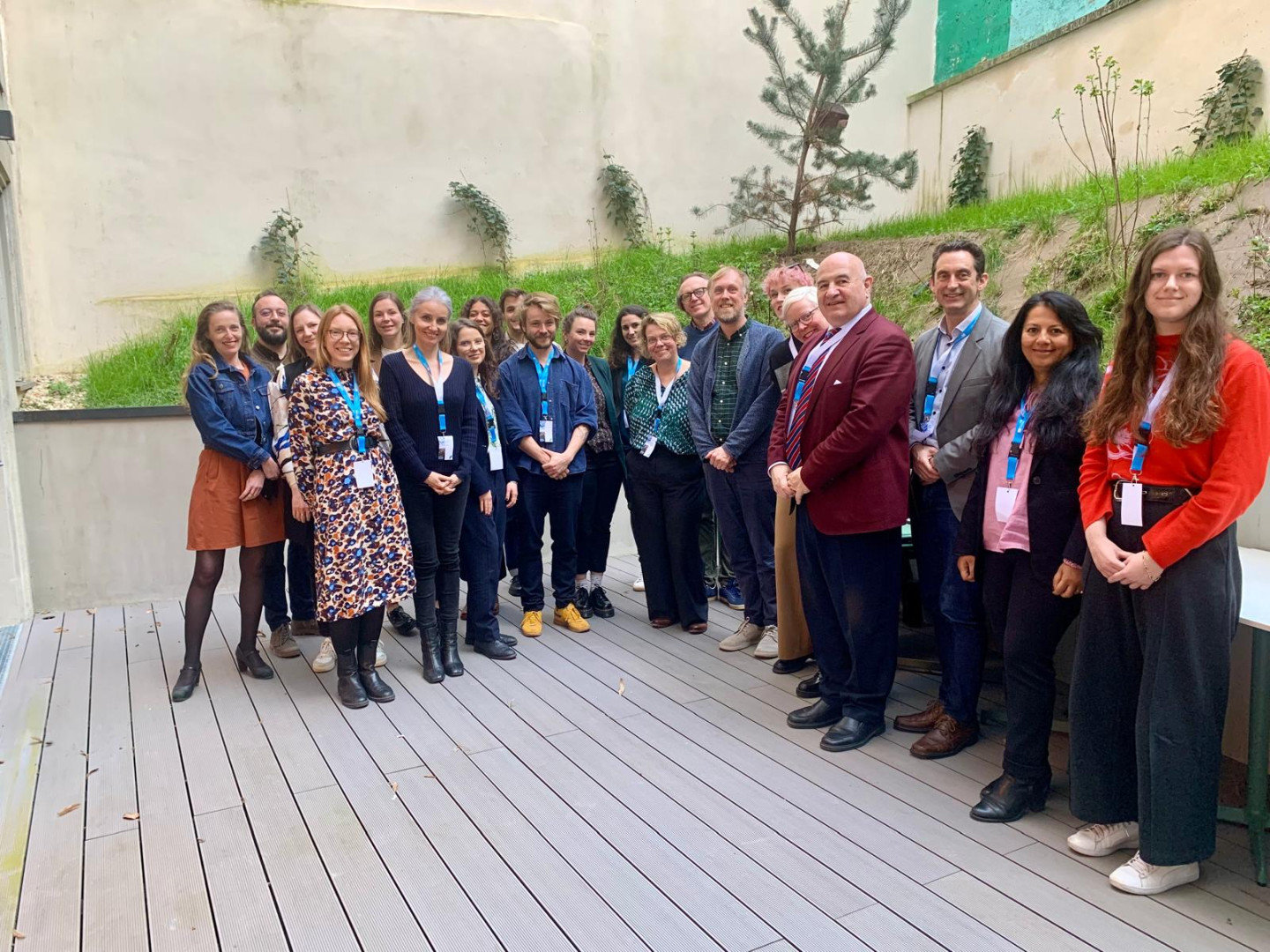
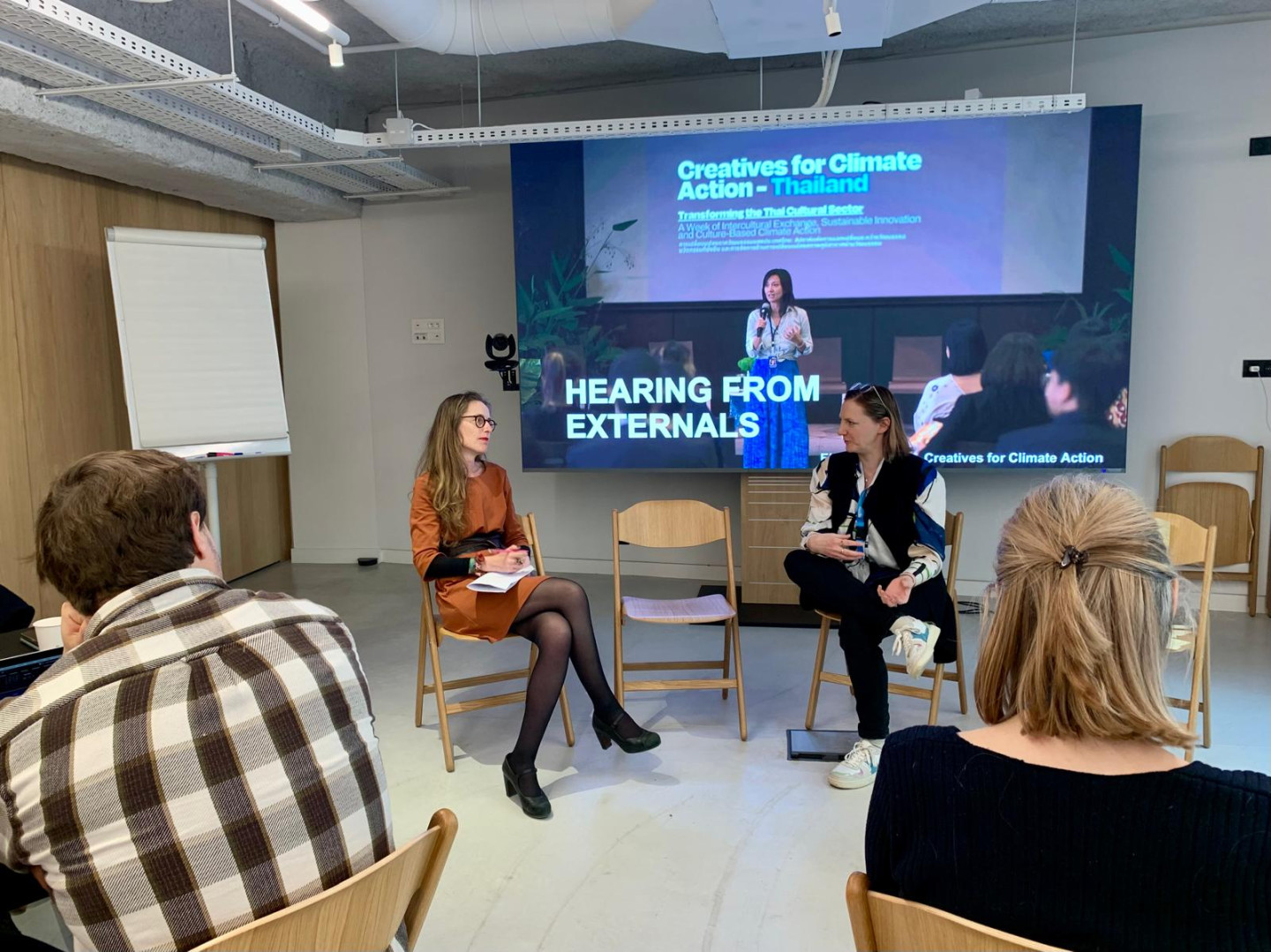
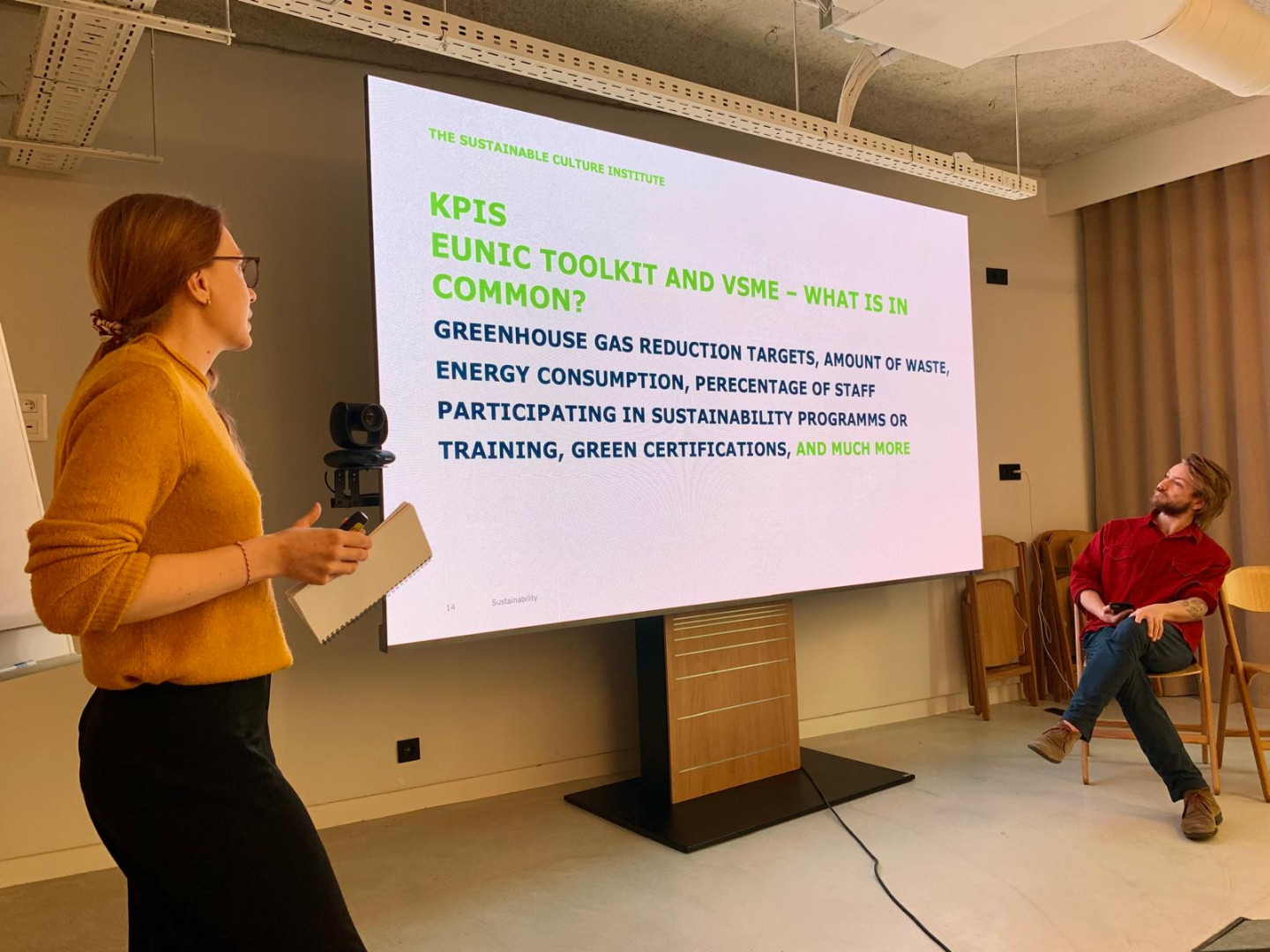
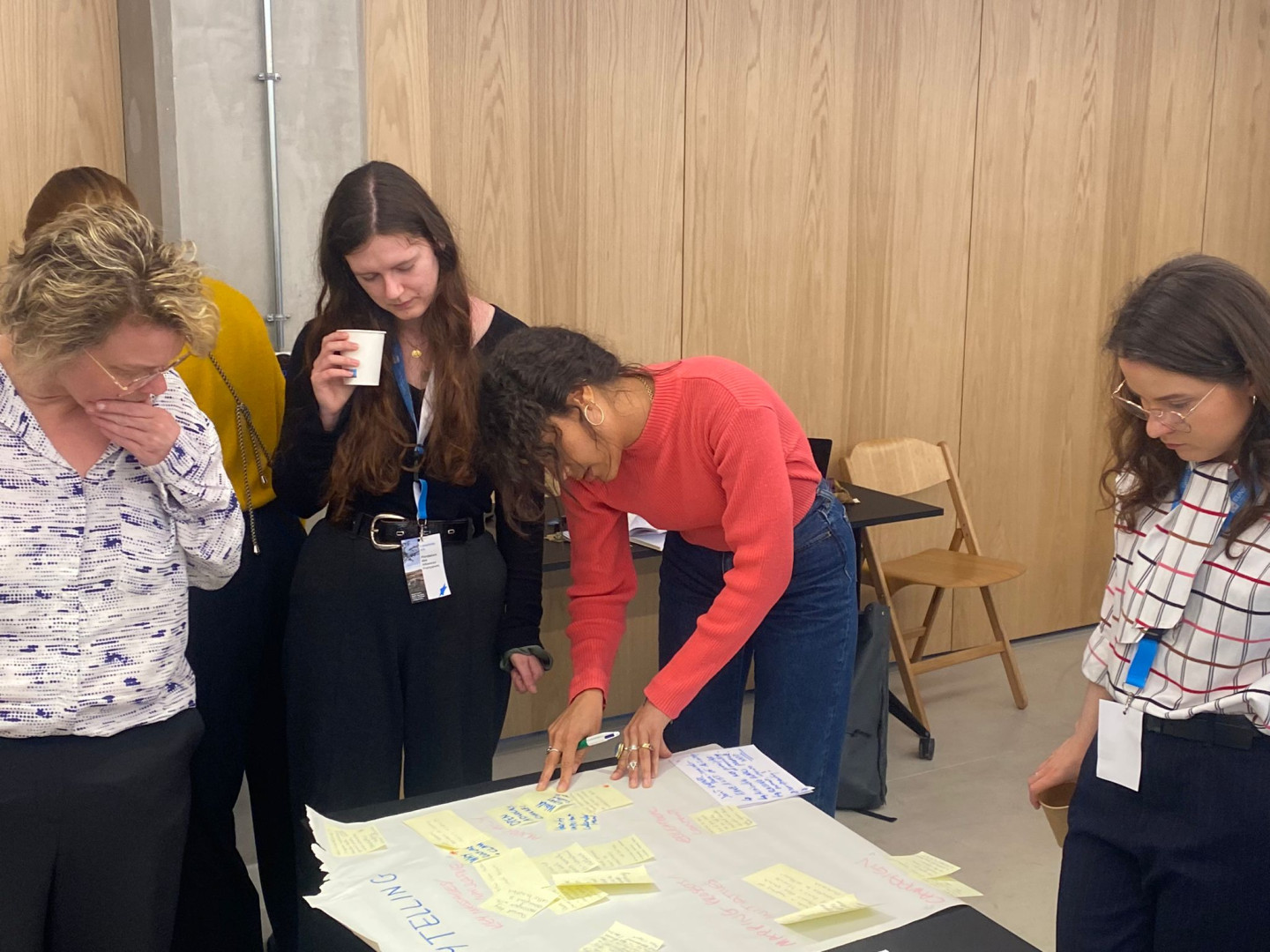
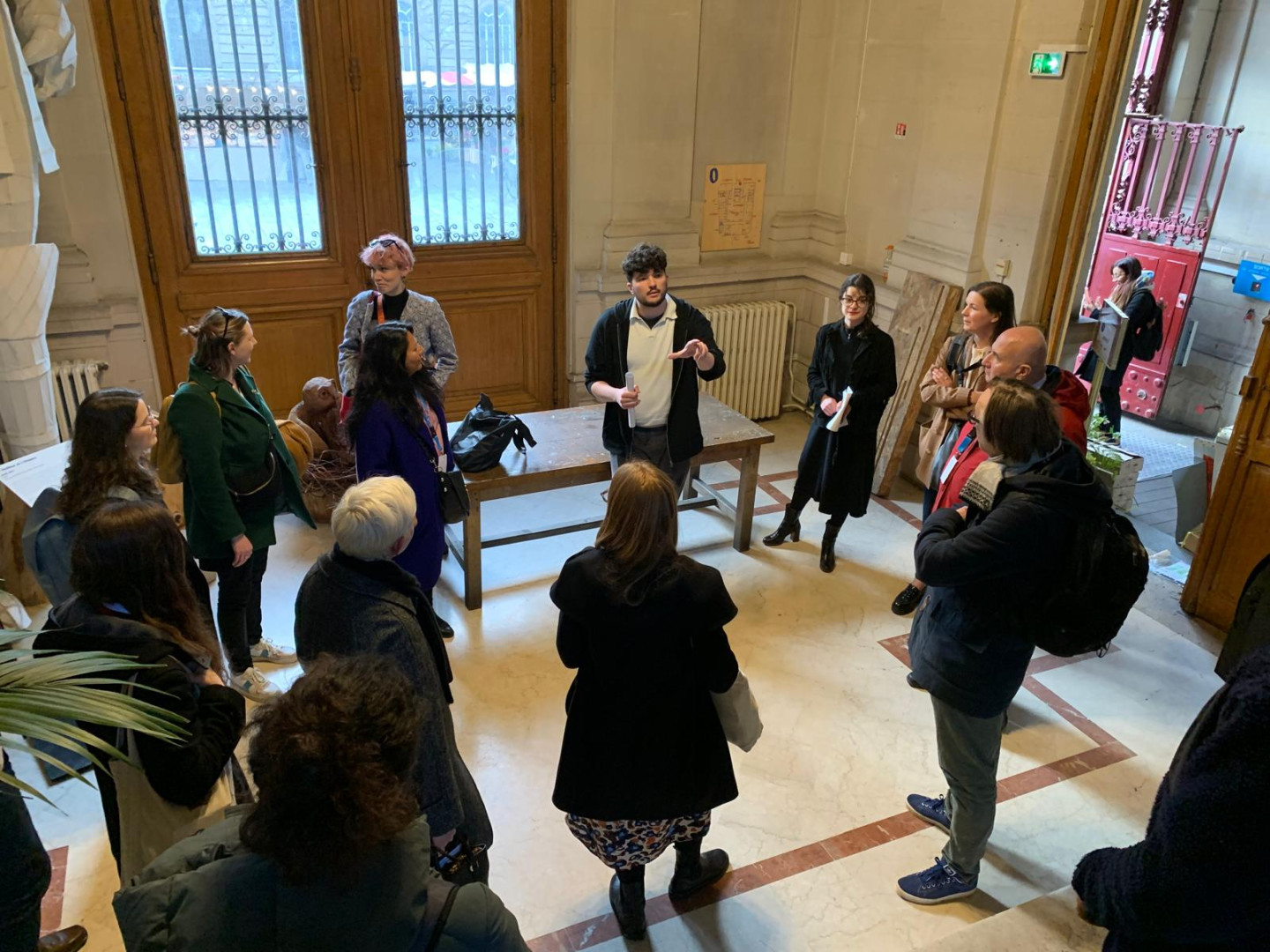
ClimArt Action: Cultural Relations, Climate Change & the Environment
From 18 to 20 March 2025, EUNIC organised ClimArt Action. This Knowledge Sharing Workshop was structured in two parts: a webinar open to a wider audience on 18 March, followed by an in-person workshop for a smaller audience of experts from across the EUNIC network, held on 19-20 March at the Institut français in Paris.





Co-organised together with British Council, the Danish Cultural Institute, DutchCulture and Institut français, the workshop explored the intersection between cultural relations, climate change and the environment, building on the Climate Culture(s) Creative Lab in Berlin and the research that led to the EUNIC Sustainability Toolkit.
The webinar: Laying the groundwork for change
The webinar was open to a wide audience across the EUNIC network interested in exploring the role and power of cultural relations in addressing climate and environmental change. Additionally, it set the stage for the following in-person discussions in Paris, showcasing a variety of examples from across the membership.
Participants were introduced to the network's sustainability journey, the importance of collective action in addressing climate challenges, and the role of cultural relations in fostering global change. The 'Tree of Change', a collective Miro board buidling on results from the Climate Culture(s) Creative Lab in Berlin, framed the workshop, inspiring attendees to reflect on growth and interconnectedness in their efforts.
Authors Maria Elena De Matteo and Eva Balaban presented the EUNIC Sustainability Toolkit, highlighting the practical resources developed specifically for the networks to guide cultural institutions in their sustainability journeys.
Culture holds an immense power that can be leveraged much more to address the climate urgency. It can help us imagine alternative futures, manifesting what we wish for and help us identify how to get there.
Maria Elena De Matteo, We Move Waves, author of the EUNIC Sustainability Toolkit
EUNIC members also shared key insights and challenges, with contributions from British Council, ifa, Institut français, and EUNIC clusters in Mongolia and Romania highlighting best practices in sustainability strategies, programmes, projects and storytelling.
You can watch the recording of the webinar here.
Live workshop in Paris: Sharing experiences and ideating next steps collectively
The two-day workshop in Paris brought together expert colleagues from EUNIC members actively working on topics of sustainability and climate change. Building on existing knowledge gathered through previous events including the webinar, and framed by the collective 'Tree of Change', the live workshop especially focused on the three pillars of evidence, storytelling and advocacy, aiming to strengthen EUNIC's joint efforts and position and to discuss and agree on realistic and practical next steps for the network.
The workshop included interactive smaller group discussions allowing to explore and identify both successes and challenges in the members' current work. Inputs from UNESCO, Creative Europe/Relais Culture Europe and the current European Commission's Open Method of Coordination expert group on 'Stimulating the green transition of the cultural and creative sectors' provided perspectives on cultural relations’ role in addressing climate change at national and international levels. These insights informed plenary reflections and strategic brainstorming on opportunities for collective action, from creating a common framework for emission measurement to fostering partnerships with key stakeholders and aligning with major events like COP30 in Brazil.
A guided visit of the Académie du Climat in the center of Paris underscored the tangible impact of cultural institutions in promoting sustainability.
Next steps for EUNIC
Building on advocacy moments and relevant stakeholders identified in EUNIC's sustainability research, insights from the webinar, and collective knowledge and efforts across EUNIC member organisations explored during the workshop, participants deliberated on the network's priorities and next steps in climate action. They agreed on several needs and priorities and potential practical next steps for the network, including the development of a shared framework to measure emissions, creating a collective narrative on the importance of cultural relations in climate action, and efforts to join the ‘Group of Friends of Culture-Based Climate Action’ following COP28 and ahead of the COP30 in Brazil.
Coming together on shared values and building on common networks is crucial. This is where EUNIC can play an important role - for example at COP. EUNIC is in a good position to share content and be part of these important conversations.
Rosanna Lewis, Senior Relationship Manager, British Council
With sustainability and climate action being one of EUNIC's horizontal priority topics over the past years, these discussions mark a significant step forward. They reinforce the network's dedication to address climate challenges through cultural relations and reaffirm its role and responsibility in promoting sustainability.
